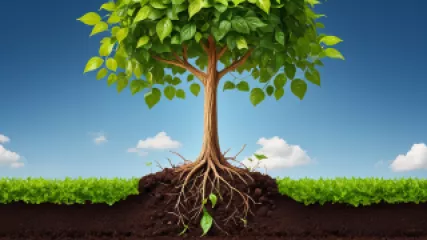Embracing Feedback: My Perspective on Dealing with Criticism
Embracing Feedback: My Perspective on Dealing with Criticism
In life, we are bound to encounter criticism in various forms. Whether it be from our peers, superiors, or even strangers, receiving feedback and handling criticism is an essential part of personal development and growth. It can be challenging to accept criticism gracefully, as it often triggers feelings of defensiveness, self-doubt, and vulnerability. However, by embracing feedback and adopting a growth mindset, we can transform criticism into opportunities for self-improvement and enhance our communication skills.
The Importance of Constructive Criticism
Constructive criticism is invaluable for personal and professional growth. It provides us with valuable insights, different perspectives, and areas for improvement that we may have overlooked. Rather than viewing criticism as a personal attack, we should recognize it as an opportunity to learn and grow.
When someone takes the time to provide feedback, it demonstrates that they care about our progress and success. By embracing feedback, we show our willingness to learn, adapt, and become better versions of ourselves.
The Power of a Growth Mindset
A growth mindset is the belief that our abilities and intelligence can be developed through dedication, hard work, and learning from our experiences. Embracing a growth mindset allows us to approach criticism with openness and the willingness to learn.
Instead of feeling defeated by criticism, individuals with a growth mindset see it as an opportunity to gain new knowledge and skills. They understand that setbacks and failures are stepping stones toward improvement. With this mindset, we can turn criticism into motivation for personal and professional development.
Tips for Handling Criticism
Dealing with criticism effectively requires practice and self-reflection. Here are some strategies for handling criticism with grace:
- Listen actively: When receiving feedback, actively listen to the person providing it. Give them your full attention and avoid interrupting or becoming defensive. This demonstrates respect and shows that you value their perspective.
- Stay calm and composed: It is natural to feel a surge of emotions when faced with criticism. Take a deep breath and remain calm. Responding with anger or defensiveness will only hinder your ability to understand and incorporate the feedback.
- Seek clarification: If the feedback is unclear or vague, don't hesitate to ask for clarification. Understanding the specifics of the criticism will enable you to address it more effectively.
- Reflect on the feedback: Take time to reflect on the feedback you've received. Consider the validity of the criticism and how it aligns with your goals and values. Use this reflection as an opportunity for self-improvement.
- Show gratitude: Express appreciation for the feedback you receive, even if it is difficult to hear. Recognize that the person providing criticism is investing their time and effort to help you grow.
- Implement changes: Once you have reflected on the feedback, take actionable steps to implement the necessary changes. Use the criticism as a catalyst for personal and professional development.
The Role of Effective Communication
Effective communication plays a crucial role in handling criticism. By improving our communication skills, we can navigate conversations surrounding feedback more successfully.
When providing criticism:
- Be specific: Clearly articulate the areas that require improvement. Vague or general feedback can be unhelpful and confusing.
- Offer suggestions: Provide suggestions or solutions on how to address the areas of improvement. This demonstrates a genuine desire to help the individual grow.
- Use constructive language: Use language that is respectful and encourages growth. Avoid using harsh or demeaning words that may hinder the recipient's willingness to accept the feedback.
When receiving criticism:
- Practice active listening: Give the person providing feedback your undivided attention. Show them that you value their opinion by maintaining eye contact, nodding, and asking clarifying questions.
- Remain open-minded: Approach the conversation with curiosity and a willingness to learn. Avoid becoming defensive or dismissive, as this can hinder effective communication.
- Express appreciation: Thank the individual for their feedback, regardless of whether you agree with it or not. Acknowledge their effort and time invested in helping you improve.
Achieving Personal Growth Through Feedback
Embracing feedback is an essential aspect of personal growth. By adopting a growth mindset, practicing active listening, and enhancing our communication skills, we can transform criticism into opportunities for self-improvement.
Remember, handling criticism is not about seeking validation or proving others wrong. It is about continuously striving for personal growth and becoming the best version of ourselves. So, let us embrace feedback, appreciate different perspectives, and use criticism as a catalyst for positive change.
Image source: Business vector created by pch.vector - www.freepik.com






